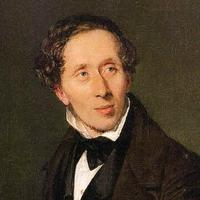The shoes of fortune, III. The Watchman's Adventure, part 4
There every acquaintance appears and speaks upon the stage, so entirely in character, and with the same tone of voice, that none of us, when awake, were able to imitate it. How well can she recall persons to our mind, of whom we have not thought for years; when suddenly they step forth "every inch a man," resembling the real personages, even to the finest features, and become the heroes or heroines of our world of dreams. In reality, such remembrances are rather unpleasant: every sin, every evil thought, may, like a clock with alarm or chimes, be repeated at pleasure; then the question is if we can trust ourselves to give an account of every unbecoming word in our heart and on our lips.
The watchman's spirit understood the language of the inhabitants of the moon pretty well. The Selenites* disputed variously about our earth, and expressed their doubts if it could be inhabited: the air, they said, must certainly be too dense to allow any rational dweller in the moon the necessary free respiration. They considered the moon alone to be inhabited: they imagined it was the real heart of the universe or planetary system, on which the genuine Cosmopolites, or citizens of the world, dwelt. What strange things men--no, what strange things Selenites sometimes take into their heads!
* Dwellers in the moon.
About politics they had a good deal to say. But little Denmark must take care what it is about, and not run counter to the moon; that great realm, that might in an ill-humor bestir itself, and dash down a hail-storm in our faces, or force the Baltic to overflow the sides of its gigantic basin.
We will, therefore, not listen to what was spoken, and on no condition run in the possibility of telling tales out of school; but we will rather proceed, like good quiet citizens, to East Street, and observe what happened meanwhile to the body of the watchman.
He sat lifeless on the steps: the morning-star,* that is to say, the heavy wooden staff, headed with iron spikes, and which had nothing else in common with its sparkling brother in the sky, had glided from his hand; while his eyes were fixed with glassy stare on the moon, looking for the good old fellow of a spirit which still haunted it.
*The watchmen in Germany, had formerly, and in some places they still carry with them, on their rounds at night, a sort of mace or club, known in ancient times by the above denomination.

